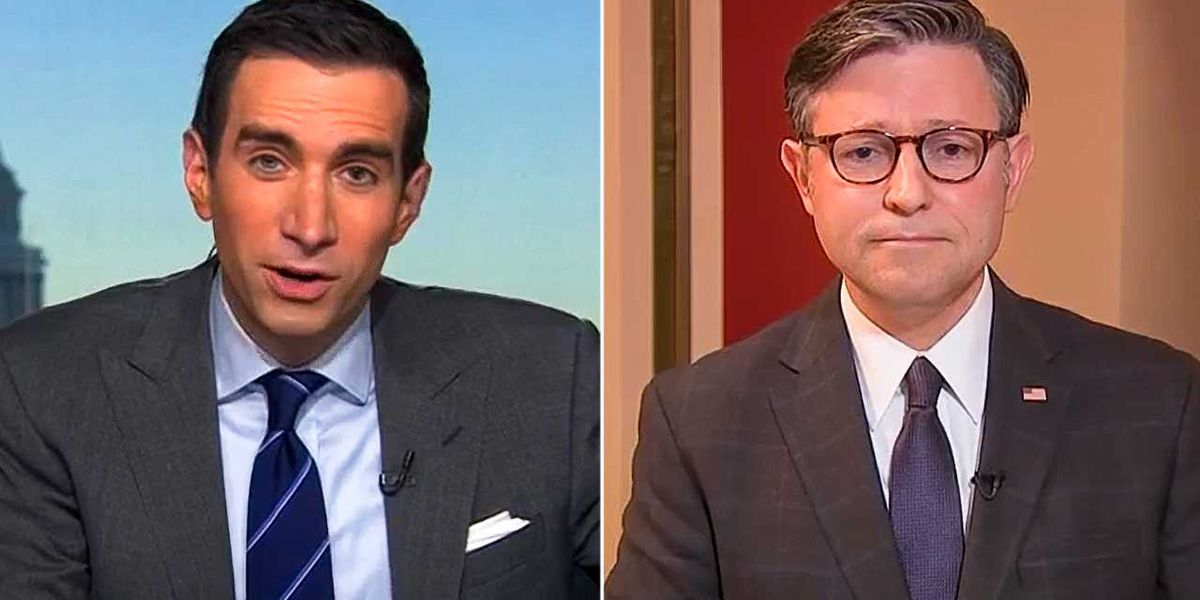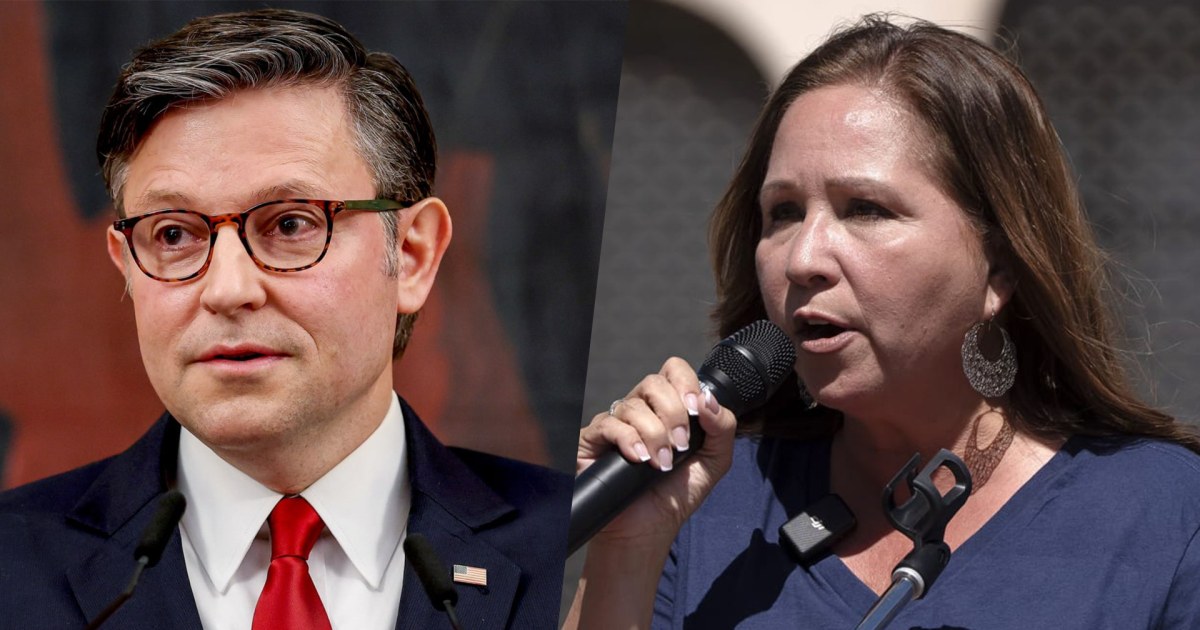Two weeks into a government shutdown with no end in sight, tensions are high and getting hotter among the people with the power to the end it.
At the U.S. Capitol this week, two Democratic senators confronted the Republican speaker of the House outside his office, accusing him of “covering up for pedophiles” by avoiding a vote to release more information on the late sex offender Jeffrey Epstein.
On the same day, the Democratic House minority leader separately yelled at a Republican congressman to “keep your mouth shut.” And that’s just the start of it.
The testy scenes underscore an increasingly bitter rapport between America’s two major political parties, as the first government shutdown in seven years approaches the start of a third week. Lawmakers were making little effort to resolve their differences in public. The House of Representatives has not taken a vote in more than three weeks and the Senate has yet to work through a weekend since funding lapsed at the end of the fiscal year on Sept. 30.
At the same time, the stakes of the shutdown are rising. On Wednesday, Oct. 15, military service members will miss their first paycheck since the shutdown crisis began. Funding for a key food aid program relied on by millions of mothers and infants will likely run out of money in the coming days. And key economic data needed to calculate Social Security payments for more than 70 million Americans next year doesn’t seem to be coming anytime soon.
Members of Congress say they are starting to feel the pressure. “I’m trying to muster every ounce of Christian charity that I can,” Speaker Mike Johnson, R-Louisiana, said of dealing with the Democrats.
“It’s bare knuckles in this fight,” added Rep. Jimmy Gomez, D-California.
Senators confront speaker
On Wednesday, Oct. 8, two Democratic senators from Arizona were complaining about Johnson outside his office.
That’s when the speaker emerged and walked toward the senators, Ruben Gallego and Mark Kelly, who then criticized him over refusing to swear in a new Democratic congresswoman from their state during the shutdown.
Once Rep.-elect Adelita Grijalva officially takes office, they pointed out, she’ll likely deliver the final vote needed to pass a measure forcing the Justice Department to publicly release more Epstein files.
The senators accused Johnson of keeping members of the House of Representatives away from the Capitol in order to delay the Epstein vote.
“We’re going to do that as soon as we get back to work. But we need the lights turned back on,” Johnson told them, according to video from the news outlet NOTUS. “You guys are experts in red herrings … This has nothing to do with Epstein.”
“You just keep coming up with excuses,” Gallego fired back.
The fiery exchange drew the attention of security guards, staffers and reporters, many of whom stood nearby, phones drawn, watching intently. It ended with all three politicians talking over each at the same time. Video of the encounter spread online.
Johnson drew even more heat when he took calls on C-SPAN the next morning. A rotation of frustrated Americans criticized him for failing to negotiate a solution to the shutdown. One caller in particular, a woman who said she was a military wife in northern Virginia who lives paycheck-to-paycheck, told the speaker of the House that her “kids could die” if troops go without pay.
Top Democrat to congressman: ‘Keep your mouth shut’
In another acrimonious scene the same day, a conversation between a Republican congressman and the leader of House Democrats devolved into a shouting match.
Rep. Mike Lawler, R-New York, confronted House Minority Leader Hakeem Jeffries, D-New York, about his refusal to support a one-year extension of expiring health insurance subsidies, which are at the center of the shutdown fight.
“It’s sad,” Lawler said, holding up a copy of a proposed bill to continue the subsidies, which come in the form of tax credits.
“Why don’t you just keep your mouth shut,” Jeffries said.
The ruckus drew a gaggle of onlookers, many of whom filmed the interaction, which went viral afterward. Talking to reporters after the fracas, Lawler said Democrats are “so full of (expletive), it’s not even funny.”
At a Cabinet meeting in the White House the next day, President Donald Trump weighed in on the shutdown with a series of jabs at the political oppoisiton. “We really don’t know who the hell is leading the Democrats,” Trump said.
Glimmers of bipartisanship
There are still some glimmers of bipartisanship in the halls of the Capitol.
Senators on both sides of the aisle are still talking to each other. Back-channel conversations continue among lawmakers on a potential health care deal that could help bring Democrats around to voting to reopen the government, though Sen. Markwayne Mullin, R-Oklahoma, described those negotiations this week as “stalled.”
Likewise, Gallego gave the GOP some credit. “I’ve been talking to my Republican friends,” he told reporters. “They do want to figure out a way out.”




